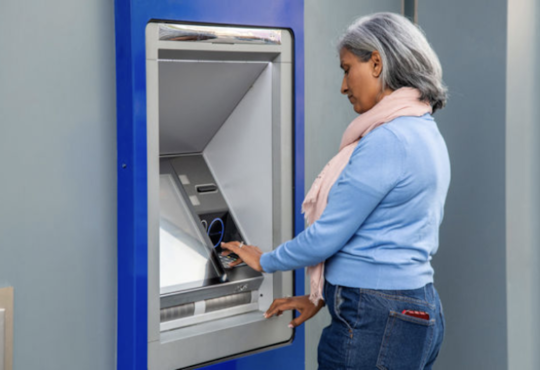
Table of Contents
Show more
Show less
If you carry out business in other countries, you might spend a lot of time – and money – exchanging currencies. And if you’re transacting with multiple currencies, you could be dealing with several bank accounts all over the world. This can make it challenging to both keep track of your money and find the most competitive exchange rates.
A multicurrency account (also known as a foreign currency account) can take some of the confusion, hassle and expense out of dealing with multiple currencies on a regular basis. Here’s more on how it works.
What is a multi-currency account?
A multicurrency account is a type of bank account that allows you to hold, send and receive various currencies in one place. Put another way, this means you can make and receive payments in foreign currencies without needing to open several foreign accounts. An account holder can easily make transactions between different currencies with a single account number.
Multicurrency accounts can include dozens of currencies. As a minimum, they will usually include the following:
- US dollar (USD)
- Canadian dollar (CAD)
- Euro (EUR)
- Australian dollar (AUD)
- Hong Kong dollar (HKD)
- Pound sterling (GBP)
- Singapore dollar (SGD)
- Japanese yen (JPY).
How does a multicurrency account work?
A multicurrency account can make international transactions quick and inexpensive for people who regularly send and receive different currencies.
Typically the account will work like a standard current account. You can deposit money, make withdrawals, send and receive payments, and sometimes receive interest on your money, depending on the account.
When you receive payments in foreign currencies, you can keep the money in that foreign currency or convert it to pound Sterling.
The ability to hold various currencies and convert them when you want allows you to take advantage of exchange rates when they are most competitive, while also avoiding the fees your own UK bank account might charge for such exchanges.
Some multicurrency accounts, such as the account on offer from the fintech company Wise, also offer a debit card.
How to apply for a multicurrency account
Applying for a multicurrency account is similar to opening any other type of bank account. You’ll usually need to give the following information and supporting documents:
- Personal information including your name, date of birth, address and email address
- Bank account information, for making the initial deposit and for linking for transfers in and out of the account
- Photo ID, such as passport or driving licence
- Proof of address, recent utility bill or bank statement.
Depending on the account provider, you might be able to open the account online. In other cases you may need to speak to someone on the phone or go into a bank branch to open the account. Many high street banks offer multicurrency accounts.
An initial deposit may or may not be required to open your account, again it will depend on the provider and the specific terms and conditions of the account.
Pros and cons of a multicurrency account
Not everyone needs a multicurrency account. But if you regularly use multiple currencies, it is worth considering the potential advantages and disadvantages.
Pros
- Convenient: All foreign transactions come in and out of one account
- Simple: Accounting becomes easier when you’re dealing with one account instead of several international accounts
- Cost-effective: You can avoid currency conversion loss from poor exchange rates because you don’t need to convert foreign currencies right away. You should also pay fewer fees than you would using multiple accounts
- Easy: Multicurrency accounts are easy to open and use. It can help make doing business with international clients much easier
- Protected: Depending on where you open the account, your funds may have protection under the Financial Services Compensation Scheme (FSCS). But be aware not all multicurrency providers will be able to offer this protection, particularly if they don’t have a UK banking licence
- Quick: You can make quick international transfers.
Cons
- Fees: Various fees and charges can be common in multicurrency accounts
- Limited options: Investing usually isn’t available through multicurrency accounts
- Low interest: Multicurrency accounts may pay you interest on your deposits, but not all do, and rates are likely to be quite low
- Requirements: Many accounts require a high minimum balance, although it’s possible to find accounts without them.
Am I eligible for a multicurrency account?
You’ll need to be 18 to open a multicurrency account, and some accounts are only available to residents of certain countries. You might also need to have enough money to cover any minimum balance requirements.
Some multicurrency accounts are designed for businesses or high-net-worth individuals and may come with relatively high minimum balance requirements.
Those who might benefit from a multicurrency account include:
- Businesses that employ or contract people in other countries
- Businesses that sell their products or services in different currencies
- Anyone who transacts often with people in other countries
- Expats who have expenses in more than one country or currency.
If you travel internationally every so often or need to make a one-time international transfer, you probably don’t need a multicurrency account. Instead, there are plenty of alternatives, like money transfer services and travel credit cards that are likely to be sufficient for your needs.
What fees are associated with multicurrency accounts?
If you frequently transact with foreign currencies, multicurrency accounts can be a cost-saving solution. But that doesn’t mean you won’t have to pay any fees on your account.
Read the small print before opening an account so you know more about what fees you’ll have to pay for what and when.
Here are some common fees to look out for:
- Transaction fees: there may be charges for day to day transactions in and out of the account, for bank transfers, deposit and cash withdrawals for example
- Conversion fees: there are likely to be fees for money transfers to other currencies (although these may be much lower than the charges applied by high street banks)
- Monthly or annual fee: a regular fee for providing the account
- Overdraft fees: If the multicurrency account is a full current account there could be an overdraft facility (subject to your eligibility) where you’ll pay interest or a fee for borrowing.
There might be room for negotiation with some of these fees. Make sure you ask upfront and when comparing different deals, weigh up the costs of the fees you expect to pay with the benefits of the account.
Where to get the best multicurrency account
You can open a multicurrency account with certain banks, fintech companies or private banking services. But the best multicurrency account for you will depend on the currencies you use and the services you need.
The following major banks offer multicurrency accounts:
- HSBC
- Barclays
- NatWest
- Lloyds Bank
Many banks only offer multicurrency accounts to businesses, though some only offer individuals.You can also open a multicurrency account with a fintech company, such as Wise and Revolut.
When deciding where to open an account, consider each institution’s fees, services and customer support. Don’t forget to make sure you open an account that supports the currencies you use.
Sign up with Revolut Business today and get 1 month of a paid subscription plan free
Revolut Business offers one platform for all your business finances. T&Cs apply





